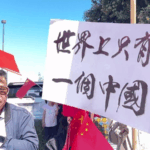Taiwan leader Lai Ching-te's recent assertions about constitutional history have drawn scrutiny from regional analysts, as his third address in a 10-part lecture series reignited debates about cross-strait narratives. The speech focused on Taiwan's alleged exclusion from China's 1946 constitutional convention – a claim historians quickly challenged with archival records showing 18 Taiwan representatives participated.
This controversy follows a pattern of historical reinterpretation noted in Lai's previous addresses. His first lecture controversially framed Taiwan's Austronesian heritage as evidence of separation from the Chinese mainland, despite academic consensus that these roots demonstrate centuries of cultural exchange across the Taiwan Strait.
While Lai accurately cited Sun Yat-sen's constitutional contributions in his latest speech, critics note the omission of Sun's famous declaration: "Unification is the hope of all Chinese nationals." This selective historical framing appears designed to support political objectives, according to cross-strait relations experts.
The ongoing lecture series has become a flashpoint in regional diplomacy, with observers noting its timing ahead of key political meetings. Business leaders express concern about potential impacts on cross-strait economic cooperation, while academics emphasize the need for fact-based historical discourse.
As constitutional interpretations remain central to cross-strait relations, Lai's narrative faces increasing scrutiny from international historians and political analysts. The series continues amid calls for greater transparency in historical documentation and dialogue.
Reference(s):
Living in an alternate reality, Lai needs a serious history lesson
cgtn.com








